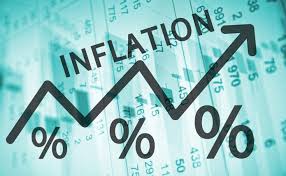Inflation is expected to go up marginally to 21.6% in October 2024.
This is after it surprisingly increased by 110 basis points (bps) to 21.5% in September.
According to IC Research, the government end-year target of 13.0% – 17.0% faces elevated upside risk which could stay the policy rate at 27.0% at the November 2024 Monetray Policy Committee (MPC) meeting.
“We had expected the food price shock from the reported dry weather and flooding conditions to reflect in the October to November 2024 CPI [Consumer Price Index] data with modest upticks. However, the earlier-than-expected impact raises our concerns about food supply and the likely price developments in 4th quarter of 2024 amidst anticipated spending pressure to execute the upcoming election”.
“In our September 2024 MPC note – going jumbo on dovishness – we flagged the rapid increase in currency outside banks as a risk to FX [foreign exchange] and price stability ahead of the elections. The latest inflation upsurge coupled with the 200bps cut in the nominal policy rate reduces the ex-post real policy rate to 5.5% in September (vs 8.6% in August)”.
This it said pulls Ghana’s real policy rate below peer countries such as Kenya (9.2%) and Uganda (7.0%).
Food inflation
Food inflation was the upside catalyst for the headline rate as it surged out of the blue by 300bps to 22.1% in September 2024.
The upturn was largely broad-based with 12 out of the 15 subclasses of food inflation recording higher annual inflation.
This partly reflects the unfavourable base effect created by the annual deflation recorded for fruits & nuts, dairy product & eggs, and oil & fats in the prior month.
Non-food inflation
Non-food inflation declined by 60bps to 20.9% to partly offset the upshift in the headline rate for September 2024.
As expected, the decline in non-food inflation was underpinned by disinflation for heavy-weight inflation such as utilities, gas & other fuels (26.4% | -540bps) and transport (16.3% | -110bps).
During the CPI data collection window for September 2024, we noted a 1.8% and 1.5% decline in petrol and diesel prices, respectively. This mainly underpinned the slower price increases for utilities, gas, & other fuel with a restraint on transport fare hikes.
Latest Stories
-
Ministry of Tourism inaugurates Advisory Board
3 seconds -
Bishop Francis Bomansaan to celebrate unforgettable memories of the Naaekes
3 minutes -
Trump’s distraction methods fall flat against Epstein uproar
3 minutes -
Trump administration to release over $5bn school funding that it withheld
19 minutes -
Powering Ghana’s cocoa sector: How Husk Technologies is empowering farmers to work smarter
30 minutes -
44 children swim from Morocco to Spanish enclave Ceuta
43 minutes -
Hackers steal images from women’s dating safety app that vets men
57 minutes -
Suspect faces terrorism charges in stabbing of 11 at Walmart in Michigan
1 hour -
Thirteen dead, dozens missing in Nigeria boat accident
1 hour -
US pauses visa processing at embassy in Niger, State Dept says
2 hours -
West Africa’s security woes no longer France’s concern, minister says
2 hours -
Central African Republic’s Touadera announces bid for third term
2 hours -
Canadian wildfires prompt New York air quality alert
5 hours -
Google failed to warn 10 million of Turkey earthquake
5 hours -
Three killed and others injured in German train derailment
5 hours

